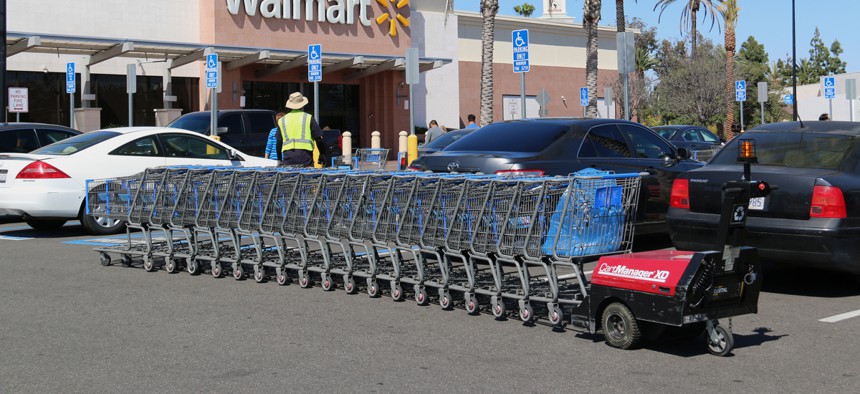Encroaching Automation Can Negatively Affect Workers

The study found that a 10-percentage-point increase in automation risk at the county level worsens general, physical and mental health by 2.38 percentage points, 0.8 percentage points, and 0.6 percentage points, respectively Shutterstock

Connecting state and local government leaders
Just the threat of automation can add stress and uncertainty to workers’ daily lives, according to a recent study by university researchers.
The increasing use of automation in the workplace can have negative effects on workers’ physical and mental health, according to a recent study.
Most of those effects are rooted in workers' fear that they could lose their jobs and be replaced by robots, per the report, titled “County-Level Job Automation Risk and Health: Evidence From the United States.”
The study is the third in a series that examine the potential effects of automation-related job losses in the last four years. In the workplace, automation can mean anything from using email marketing services to robots that streamline assembly lines in factories.
The study, which looked at workplaces in more than 3,000 counties in the United States, was written by three researchers from Ball State University and a professor from Villanova University, and was published in Social Science and Medicine.
Just the threat of automation can contribute to feelings of having poor job security, adding stress and uncertainty to workers’ daily lives, said Michael Hicks, director of the Center for Business and Economic Research at Ball State University and one of the study’s lead researchers.
“While estimates of potential job losses due to automation vary for our nation—with one as high as 47 percent—most people agree that the risk of automation is significant and growing,” Hicks said in a statement.
People who live and work in communities where automation is happening "are sickened by the thought of losing their jobs and having no way of providing for themselves or their families,” he said.
The study found that a 10 percentage-point increase in automation risk at the county level worsens general, physical and mental health by 2.38 percentage points, 0.8 percentage points, and 0.6 percentage points, respectively. Physical distress, including being hospitalized or otherwise unable to work, and mental anguish, like depression, are linked to workers’ fears of losing their jobs to automation.
Not all of those fears will manifest into job losses, but they can still have “a direct and lasting impact on individuals, families, and communities,” Hicks told FierceCEO. “While we cannot fully unpack the black box between county-level automation risk and health, it is important for policymakers to understand the health effects of automation risk.”
Kate Elizabeth Queram is a Staff Correspondent for Government Executive’s Route Fifty and is based in Washington, D.C.

NEXT STORY: Facebook Will Offer Platforms Teaching Tech Skills in Cities




